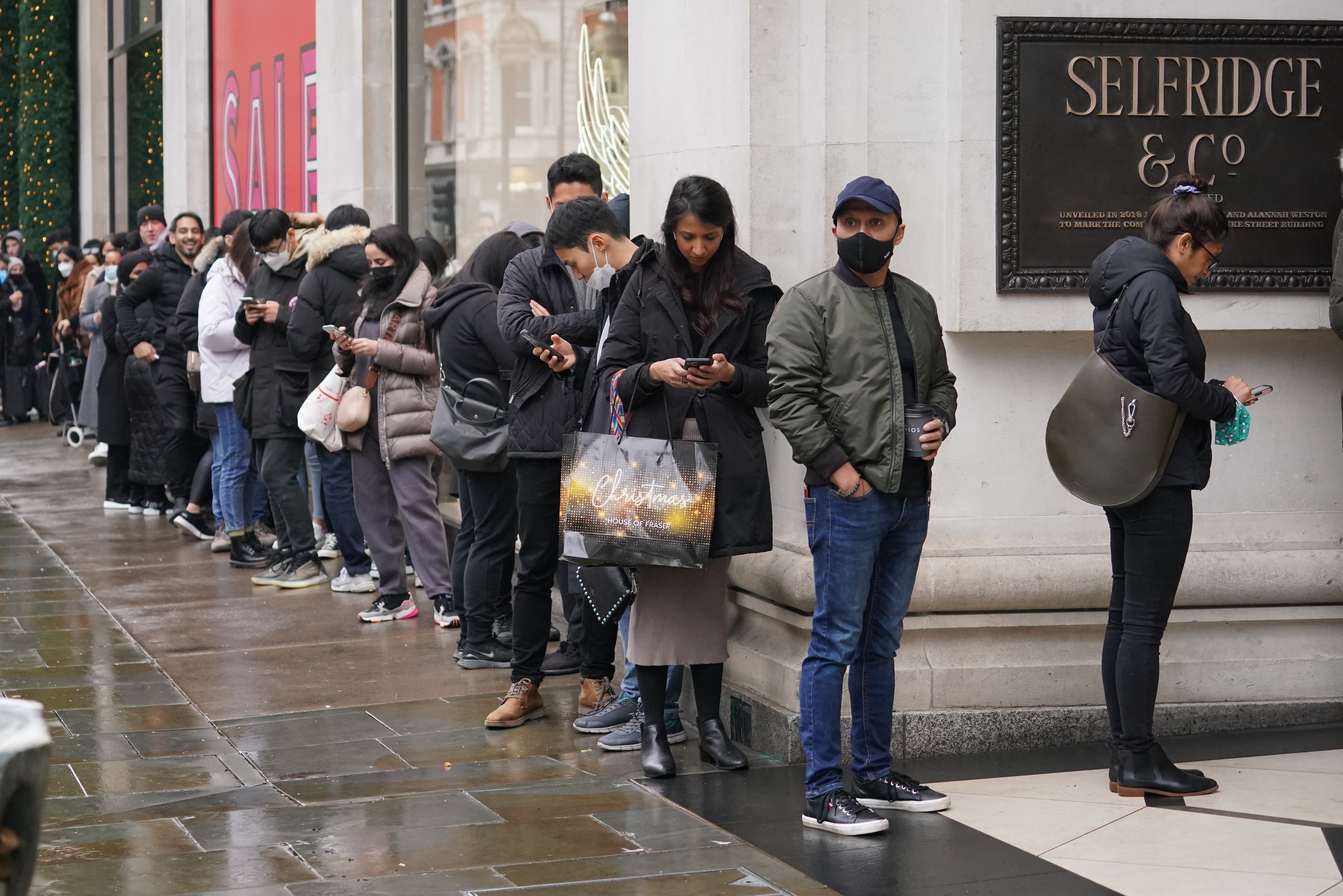Omicron has sent Boxing Day shoppers online, retail experts say
Though some braved the rain to attend Boxing Day sales, fears of the Omicron variant meant many shopped online according to retail experts.

Your support helps us to tell the story
From reproductive rights to climate change to Big Tech, The Independent is on the ground when the story is developing. Whether it's investigating the financials of Elon Musk's pro-Trump PAC or producing our latest documentary, 'The A Word', which shines a light on the American women fighting for reproductive rights, we know how important it is to parse out the facts from the messaging.
At such a critical moment in US history, we need reporters on the ground. Your donation allows us to keep sending journalists to speak to both sides of the story.
The Independent is trusted by Americans across the entire political spectrum. And unlike many other quality news outlets, we choose not to lock Americans out of our reporting and analysis with paywalls. We believe quality journalism should be available to everyone, paid for by those who can afford it.
Your support makes all the difference.Retail experts say the Omicron variant has sent shoppers online as the number of bargain hunters looking for Boxing Day sales on the high street plummeted to almost half of pre-pandemic levels.
Footfall at shopping sites across the UK on Boxing Day up to noon was 45% below the 2019 level, according to data from industry analyst Springboard.
But the British Retail Consortium said that, although many consumers shunned the shops, the sector could see a boost due to online trade.
Tom Holder, Spokesperson for the British Retail Consortium, said: “The spread of Omicron across the UK has increased the share of spending made online as many consumers avoided town and city centres.
“While spending on travel and hospitality may be lower than their pre-pandemic levels, retailers are waiting to see whether this leads to higher spending on retail goods, particularly food and homeware.”
In central London footfall was 67% lower than 2019 numbers, while it was 58% below 2019 in other major UK cities.
Market towns fared slightly better, seeing a 12% decrease from 2019 shopping traffic, while there was only a 7% drop in outer London.
The amount of high street traffic may also have been affected by new coronavirus restrictions which came into force on Sunday in Wales, Scotland and Northern Ireland, including wearing masks in all shops and limiting group sizes to six indoors.
Footfall in Northern Ireland was 73% below the 2019 level, 63% lower in Wales, and almost 50% lower in Scotland.
Despite the drop, large queues formed outside the Trafford Centre in Manchester with shoppers waiting since 8am, while bargain hunters also lined up outside Primark in Birmingham and Zara in Bristol.
There were also queues outside Selfridges, Boots, Primark, Disney and Zara on Oxford Street in London.
Queueing outside the Disney store in Oxford Street, London to shop on her daughter’s behalf, Nic Portway from London told the PA news agency she was not planning on spending much in the sales but was happy to still go to the shops in person despite the rise in Covid cases.
She said: “I am not really surprised by how many people are out because we have got to get on with it, there is always going to be another variant so what do we do?
“We can’t keep locking down every time there is a new variant otherwise everything will just stop.”
Another shopper said she only came out on Boxing Day because her planned Christmas Day online shopping at Zara fell through due to an error on the app.
The woman said: “I was surprised to see this many people out and about, when I walked down Oxford Circus there was hardly anyone around, but then when I arrived at Oxford Street there were big queues, all around the corners.”
Masks were worn by most shoppers on Oxford Street, whether in a queue or walking around but many of the shops were not full of people.